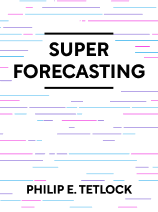

This article is an excerpt from the Shortform book guide to "Superforecasting" by Philip E. Tetlock. Shortform has the world's best summaries and analyses of books you should be reading.
Like this article? Sign up for a free trial here .
Who was Archie Cochrane and what was his legacy? How did he revolutionize the field of medicine?
Archie Cochrane was a Scottish physician, professor, and epidemiologist. He is best known for his 1971 publication titled “Effectiveness and Efficiency”, where he made a case for evidence-based medicine.
Read about Archie Cochrane and his contribution to health care.
The Legacy of Archie Cochrane
Archie Cochrane was a Scottish physician and professor who is best known for emphasizing the necessity of randomized clinical trials for medical research. His introduction of RCTs revolutionized the field of medicine and brought it up to date with modern science, but it met powerful resistance from physicians, who argued that any experiment that included a control group was unethical because it required denying some patients treatments they were sure would help.
In a response to this backlash, Cochrane set out to prove the superiority of randomized clinical trials by testing the effects of a brand new cardiac unit on patient recovery. His fellow physicians reluctantly agreed to the experiment despite their serious concerns—the new cardiac unit was obviously superior, so why risk compromising patients’ health to prove it? Nonetheless, they let Cochrane randomly divide the patients into two groups, one of which would receive care in the new cardiac units while the other was sent home to recover (the old treatment).
When Cochrane reported preliminary results of the experiment to his cardiologist friends, he claimed that, so far, patients in the cardiac care units were recovering slightly better than patients who were sent home. Predictably, there was immediate uproar from the cardiologists, who demanded he stop the experiment. But Cochrane had lied: There was a small difference between groups, but it was the home care group that was faring slightly better. The group of physicians was stunned into silence, having been forced to finally confront the limits of their medical expertise.
The Fate of Cochrane
Archie Cochrane went on to build a career out of promoting rigorous scientific testing and became known as the “father of evidence-based medicine.” His beliefs were put to the test in 1956 when Cochrane had a small cancerous lesion removed from his hand. Although this type of cancer typically didn’t spread, he was referred to a specialist just in case, who found a lump under Cochrane’s arm and recommended surgery to remove it. Trusting the specialist, Cochrane agreed to the surgery.
Afterward, the specialist delivered bad news: He’d found cancerous tissue extending all the way into the chest and had removed an entire muscle. The pathologist’s report on the tissue wasn’t in yet, but the specialist’s prognosis was grim: Cochrane’s time was limited, and he should prepare for the worst. Cochrane and his loved ones grieved and made plans for how to spend his remaining time.But the worst never came. In fact, Cochrane later found out from the delayed pathologist’s report that the tissue in his arm and chest had never been cancerous at all.

———End of Preview———
Like what you just read? Read the rest of the world's best book summary and analysis of Philip E. Tetlock's "Superforecasting" at Shortform .
Here's what you'll find in our full Superforecasting summary :
- How to make predictions with greater accuracy
- The 7 traits of superforecasters
- How Black Swan events can challenge even the best forecasters






